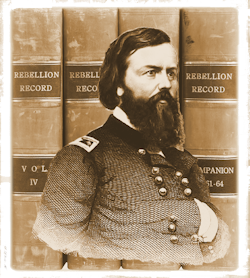March 4.—An intelligent gentleman, arrived in Richmond, Va., from the South, states that the whole country is in a blaze of patriotic enthusiasm. The late reverses have awakened a military spirit which throws into the shade the glorious demonstrations at the beginning of the war. The whole population is offering itself en masse for the defence of the county. It is said that nothing like the universal and fervid awakening of the people to the exigencies of the times has occurred before from the beginning of the war. Men of all ages are eager to unite in the holy work of driving back the foul invader from our Southern homes, and even the women, if they could procure arms, would buckle them on and hasten to the field. As it is, the prayers of mothers, wives and daughters, were sent up unceasingly to Heaven in behalf of ” the case, the cause, the course,” that is giving strength even to the arm of old age, converting boys into veterans, and even the weak and timid into heroes.
Let the government keep up with the energy of the people, and we have every reason to believe it will; let the government emulate the splendid boldness of the soldier, and the tide of battle will soon be in our favor. Let all be prepared for sacrifices, to make bonfires of cotton and tobacco, and convert every Southern town to ashes, rather than to submit to a base and inhuman foe. In such a spirit, and with humble reliance on Heaven, our independence is as sure as the rising of to-morrow’s sun.—Richmond Dispatch, March 5.
—A General order was issued by Gen. McClellan, dismissing Col. James E. Kerrigan, of the Twenty-fifth regiment N. Y. S. V., from the service. The court-martial found him guilty of habitual neglect of duty; conduct prejudicial to good order and military discipline; violation of the forty-fourth article of war in failing to attend a meeting of officers ordered by his brigadier general; a violation of the ninth article of war; and sleeping outside the camp without leave.— N. Y. Commercial, March 5.
—The Senate of the United States confirmed the nomination of Senator Andrew Johnson, of Tennessee, as Brigadier-General, at the nomination of the President, and the Senator at once proceeded- to organize a provisional government for Tennessee, over which he is to preside as Military Governor until a regular civil government is organized.—National Intelligencer.
—Gen. Shields passed through Charlestown, Va., this day, on his way to take command of the late Gen. Lander’s brigade.—Mrs. William H. Norris was arrested at her residence in Baltimore, Md., by orders from Washington, and conveyed to that city, on the charge of transmitting clothing to persons in the rebel army in Virginia.— Baltimore American, March 5.
—Gen. Hitchcock has been compelled, on account of impaired health, which will not permit him to perform the responsible duties of the position in the field, to decline the appointment of Major-General lately tendered by the President with the approval of the Senate. His letter to this effect utters strong Union sentiments, his fervent desire that the rebellion may be speedily overthrown, and his confident belief that this will soon take place, and the authority of the Federal Government everywhere be reestablished. He expresses great admiration of the recent brilliant achievements in the West, and of the military genius which they manifest.—National Intelligencer, March 5.



